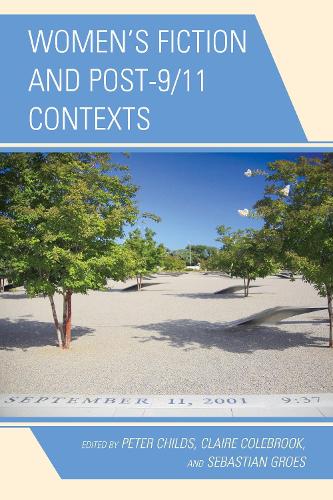
Women's Fiction and Post-9/11 Contexts
(Hardback)
Publishing Details
Women's Fiction and Post-9/11 Contexts
By (Author) Peter Childs
Edited by Claire Colebrook
Edited by Sebastian Groes
Contributions by Roberta Garrett
Contributions by Ruzy Suliza Hashim
Contributions by Emily Horton
Contributions by Kristine Miller
Contributions by Jago Morrison
Contributions by Ana-Karina Schneider
Contributions by Corina Selejan
Bloomsbury Publishing PLC
Lexington Books
21st October 2014
United States
Classifications
Professional and Scholarly
Non Fiction
Gender studies: women and girls
Feminism and feminist theory
820.99287
Physical Properties
Hardback
234
Width 160mm, Height 239mm, Spine 22mm
481g
Description
9/11 is not simple a date on the calendar but marks a distinct historical threshold, ushering in the war on terror, various states of emergency, a supposed clash of civilizations, and the putative legitimation of counter-democratic procedures ranging from extraordinary renditions to enhanced interrogation. Perhaps no date, since Virginia Woolf declared that on or about December 1910 human character changed, has marked such a singular point in the perception of time, identity and nature. Womens writing has always been something of a counter-canon, offering modes of voice and point of view beyond that of the man of reason. This collection of essays explores the two problems of what it means to write as a woman and what it means to write in the twenty-first century.
Reviews
This is a fascinating, wide-ranging, and intellectually stimulating over-view of a number of important contributions to post-9/11 fiction by women. The essays here cover many vital contemporary issues from Aesthetics, the Spectacle, Gender politics and the representation of Islamic experiences. The book offers provocative and radical readings of texts that have, often in subtle, oblique and symbolic ways responded to the tense, uncertain mood and atmosphere of the opening decade of the twenty-first century. -- Martin Randall, University of Gloucestershire
This remarkable volume mines an unexpected niche in the aftermath of the twenty-first centurys supposed trip-wire event (or suckers trap), 9/11, by tracking its import not in geo-politics or imperial decline but, less obviously, inwomenswritingand the writing of woman. Here it locates an unexamined corridor and portal already opening onto the era of climate change and ecocide which the former event, to a significant degree, masked. The result is a bravado collective performance which displays, unexpectedly, the surgical import ofliterarythought, today, and a writing that never had signed on to the mythographies of 9/11 or to the so-calledAnthropocenethat has replaced it as a new, again gender-marked, Potemkin alibi of the times. -- Tom Cohen, University at Albany, State University of New York
Author Bio
Peter Childs is professor of modern and contemporary English literature at Newman University. Claire Colebrook is Edwin Erle Sparks Professor of English at Pennsylvania State University. Sebastian Groes is senior lecturer in English literature at Roehampton University.
